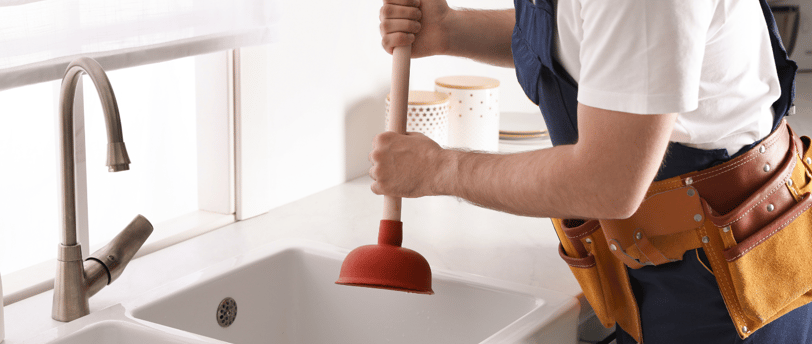Solutions for a Clog-Free Home: DIY Tips and Tricks for Unclogging Drains
10/14/20242 min read


Dealing with a clogged drain can be a frustrating experience, but fear not! In this blog post, we'll share some DIY tips and tricks to help you unclog drains effectively and prevent future blockages. Whether it's a stubborn kitchen sink, a slow-draining shower, or a backed-up bathroom drain, these simple yet effective methods will empower you to tackle clogs with confidence. Say goodbye to standing water and slow drains with our expert advice on clearing blockages and maintaining the flow in your home's plumbing system.
1. The Mighty Plunger:
The plunger is a classic and effective tool for dislodging clogs in sinks, tubs, and toilets. To use a plunger, ensure a tight seal around the drain opening and plunge up and down vigorously to create suction and pressure that can help break up and clear the obstruction. This simple yet powerful tool can often resolve minor clogs without the need for harsh chemicals or professional intervention.
2. DIY Drain Snake or Wire Hanger:
For more stubborn clogs, consider using a DIY drain snake or straightened wire hanger to physically dislodge and remove the blockage. Insert the snake or hanger into the drain and carefully maneuver it to break apart and extract the clog. This method can be particularly effective for addressing hair, soap scum, and other debris that may be causing a blockage.
3. Natural and Homemade Drain Cleaners:
Avoid the harsh chemicals found in many commercial drain cleaners and explore natural and homemade alternatives instead. Baking soda and vinegar can be combined to create a fizzy, non-toxic solution that helps break down organic matter and clear minor clogs. Alternatively, a mixture of hot water, salt, and baking soda can be poured down the drain to help dissolve grease and debris.
4. Maintenance and Prevention:
Preventing clogs is just as important as clearing them. Implementing simple maintenance practices like using drain screens, regular cleaning, and being mindful of what goes down the drain can go a long way in preventing blockages. Educate household members about the importance of proper disposal of grease, food scraps, and other materials that can contribute to clogs.
5. Seeking Professional Help:
If DIY methods prove unsuccessful or if you encounter persistent or recurring clogs, it may be time to consult a professional plumber. A licensed plumber can assess the situation, identify underlying issues, and provide targeted solutions to address the root cause of your drain problems.
Conclusion:
With these DIY tips and tricks at your disposal, you can approach clogged drains with confidence and take proactive steps to keep your plumbing system running smoothly. From using household items to natural solutions, to knowing when to seek professional help, you now have the knowledge to tackle drain clogs effectively. Stay tuned for more practical tips and guidance on maintaining a healthy and clog-free plumbing system in your home.
Looking for your free quote or estimate? Call us at 647-232-5731
